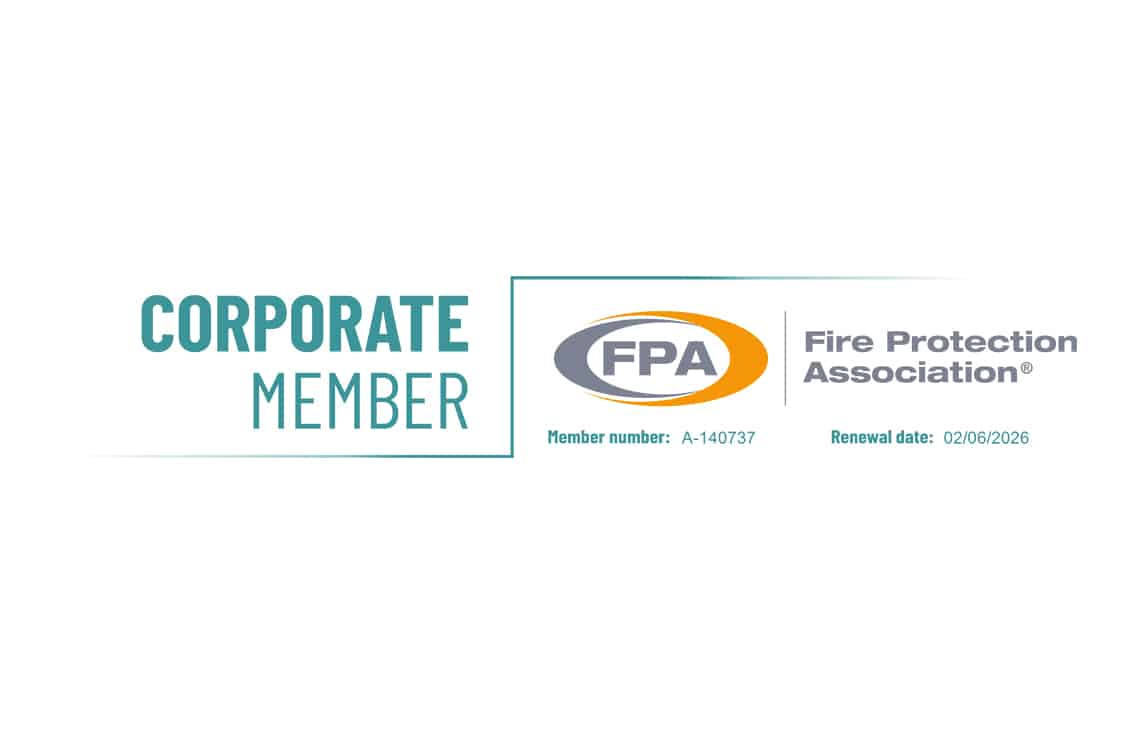Passive Fire Protection
Passive fire protection from Element PFP. Fire protection is the study and practice of mitigating the unwanted effects of potentially destructive fires. It is putting proactive fire protection measures in place to prevent or limit the spread of fire.
The term ‘Fire Protection’ is generally broken down into two classifications; ‘Passive’ and 'Active’.
Here at Element PFP, we offer a comprehensive suite of passive fire protection services designed to enhance building safety and ensure compliance with UK fire safety regulations. Our services are tailored to various sectors, including commercial, healthcare, education, and housing, providing bespoke solutions to meet specific fire safety requirements.

Passive Fire Protection: Defined
Passive fire protection involves integrating fire-resistant features into a building's structure to prevent or slow the spread of fire and smoke. Unlike active systems like alarms or sprinklers, it is built into the fabric of the building and doesn't require activation. Key components include:
- Fire doors
- Fire shutters
- Compartment walls and floors
- Partitions
- Suspended ceilings
- Fire-resistant glazing
- Fire fighting shafts and stairwells
- And much more.
These features help contain fires within designated compartments for a specified duration (typically 30 minutes to 4 hours), allowing occupants to evacuate safely and providing firefighters with access to control the fire. Any extra time is crucial for residents, so ensure your building has the best fire protection by contacting us today.
Active Fire Protection: Defined
Active fire protection measures are tools and solutions that are used in direct response to an active fire. From fire alarms, sprinklers, smoke ventilation, dry and wet risers, and much more.
The Function Of Passive Fire Protection
The primary function of fire protection is to prevent the passage of fire and smoke within a fire compartment of a building that has been divided up into manageable areas of risk for a defined period of time (Fire Strategy), which typically ranges from 30 minutes up to 4 hours, this to allow for occupants to escape and to provide a safe means of access for fire fighters.
Passive Fire Protection is sometimes defined as ‘built in’ fire protection and is a generalisation that covers a wide range of generically different systems, such as Fire Protection to structural components of the building as well as cavity barriers, penetration seals, fire-resisting glazing, suspended ceilings and more.
Why Choose Element Passive Fire Protection?
When it comes to protecting your business, staff, residents and premises, you want to be sure you're working with the best.
At Element PFP, we combine years of technical expertise with a true commitment to quality, safety, and compliance. Our team delivers tailored, reliable, and accredited passive fire stopping solutions that meet the highest industry standards, ensuring your building remains protected, compliant, and future-ready. Here’s what sets us apart:
All our services are third-party accredited, ensuring high standards of quality and following our mission of compliance with every project.
From initial assessments to installation and maintenance, we offer end-to-end fire protection services. We also check on our clients further down the line to ensure everything is how it should be.
Our services are put together and implemented to meet the specific needs of each client, ensuring optimal safety outcomes for your business, sector and environment.
With over 130,000 survey inspections and 100,000 installations completed, we have a strong history of delivering effective fire protection solutions.
Contact us via our form below for passive fire protection, and a member of the team will be in touch as soon as possible! Or give us a call at 0116 467 0387
"*" indicates required fields
Fire Safety Specialist Certifications & Memberships
As one of the UK's leading expert fire protection consultants, we believe that you should be able to know that you are working with a creditable and respectable company. As such, we are proud to display our various 3rd-party Fire Safety accreditations and certifications. If you would like to know more about our certifications and memberships, then please feel free to contact us today.
Enquire Now and Get a Free Quote!


















